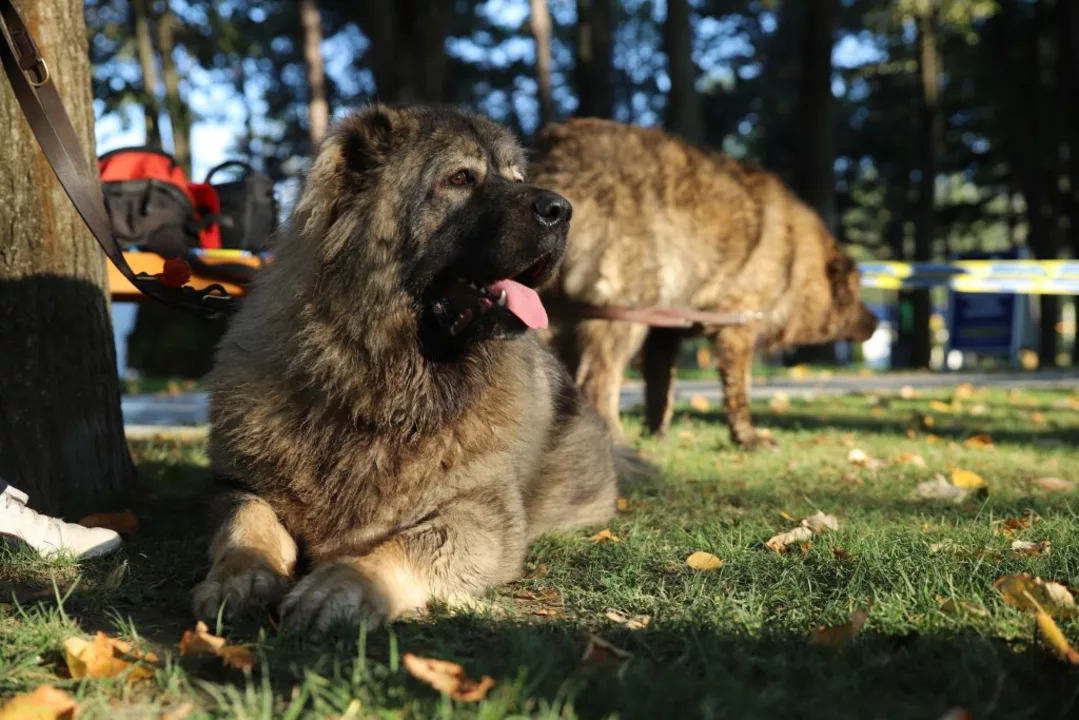
A Comprehensive Guide to Caring for a Caucasian Shepherd
The Caucasian Shepherd is a majestic and powerful breed of dog that requires experienced and knowledgeable owners to care for them properly. These dogs are also known as Caucasian Ovcharkas, and they are large and strong animals with thick coats that require regular grooming to keep them healthy and looking their best.
Feeding a Caucasian Shepherd is a bit different than with other breeds, as they need a high-quality diet with a lot of protein and healthy fats. The food should be tailored to the individual needs of the dog, as some will require more or less food than others. It is best to feed the dog twice a day, with a high-quality kibble or a combination of kibble and wet food.
Exercise is an important part of caring for a Caucasian Shepherd, as they require a lot of physical activity to stay healthy and happy. Daily walks and playtime are essential to help keep them fit and burn off extra energy. They also love to swim and run, so access to a large yard or nearby park is ideal. But it is important to remember that as large and powerful dogs, they need to be trained and socialized properly to ensure they are obedient and know when they need to be kept on a leash.
Grooming a Caucasian Shepherd is an important part of keeping them healthy and looking their best. Their thick coat needs to be brushed several times a week to keep it from becoming matted, and they will also need to be bathed regularly. They will also need to have their nails trimmed and their ears checked for infections or dirt.
Health is an important part of caring for a Caucasian Shepherd, and it is important to take them for regular checkups to make sure they are healthy. They are prone to hip dysplasia and other joint problems, so it is important to watch for any signs of discomfort or pain. It is also important to keep them up to date on their vaccinations, as they can be susceptible to certain diseases.
Overall, caring for a Caucasian Shepherd is not an easy task, but it is one that can be rewarding if done correctly. With the right knowledge and dedication, these dogs can be happy and healthy members of any family.
Navigating the Challenges of Raising a Caucasian Shepherd
Raising a Caucasian Shepherd can be a challenging yet rewarding undertaking. It is important to understand the unique needs of this breed, as well as the potential risks associated with owning one.
Health Risks
Caucasian Shepherds are particularly prone to hip dysplasia, which can lead to pain, discomfort, and immobility if not addressed. They are also prone to a range of other health issues, including heart disease and skin problems. It is important to be aware of these risks and take steps to prevent them, such as regular vet check-ups and a nutritious diet.
Training and Socialization
Caucasian Shepherds are highly intelligent and loyal, but their strong guarding instincts can make them difficult to train and socialize. It is important to start early, with puppy classes and socialization, and to be consistent in the commands and rules you set for your pet. A good positive reinforcement-based training program is essential for a well-behaved Caucasian Shepherd.
Exercise Needs
Caucasian Shepherds are an active breed and require regular exercise to stay healthy and happy. This should include daily walks or jogs, as well as plenty of play time. Swimming is also a great way to provide your pet with the physical and mental stimulation they need.
Grooming
Caucasian Shepherds have heavy, thick coats that need regular grooming in order to stay healthy and free of mats and tangles. Brushing at least once a week is recommended, as is regular bathing with a shampoo formulated for dogs. It is also important to trim their nails regularly to avoid overgrown nails causing issues such as ingrown nails.
Overall Takeaway
Taking care of a Caucasian Shepherd can be challenging but rewarding. It is important to understand their unique needs, including health risks, training and socialization, exercise needs, and grooming. With the proper care, your pet will be a loyal, loving companion for many years to come.



